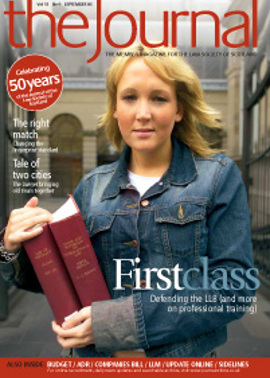Website reviews

The world wide web being what it is, most of the online information on defamation is about online defamation. Many of the sites reviewed therefore have an international flavour, although Scots law sites are referred to where available.
Out-Law
www.out-law.com/page-5624
Pinsent Masons’ (www.pinsentmasons.com) excellent IT and e-commerce information resource has (on page 5624) the best introductory guide to defamation law I could find online covering both Scots and English law. It deals not just with online defamation but also the more traditional means of saying nasty things about other people. It includes a useful consideration of some of the practical and legal issues arising, e.g. e-commerce regulations, vicarious liability, insurance and confidentiality.
While the information on this page (and the pages it links to) is good, it is undeniably pitched at a lay audience. Where reference is made to regulations, they are not named and mention is made of cases without citation or links to the relevant judgments. That level of detail is not the purpose of this website, but it does make it a little less useful for the lawyer.
CyberLibel
www.cyberlibel.com
This is the website of Canadian lawyer David Potts who, in addition to securing the perfect URL for practice in this area of law, has produced an interesting and useful website on the subject. The internet being a global phenomenon, litigation concerning it (including defamation which takes place online) tends to borrow heavily from cases in other jurisdictions. The result is that the website offers not just a Canadian legal perspective on “cyberlibel” but an international viewpoint, drawing on cases from Australia, the USA and the UK and distilling them to some very practical (and much needed) guidelines. In addition to articles, and questions and answers, there is a collection of relevant news stories.
The design and layout of the website is not brilliant (it uses frames, for example) and many of the pages therefore require archaeological skills to unearth. Further, despite several images claiming the “New!”-ness of various pages and a front page which states that the most recent update was only weeks ago, large parts of the site do not appear to have been updated for some considerable time (perhaps years). While the site remains of interest, its content must therefore be treated with caution.
Electronic Privacy Information Center
http://epic.org/free_speech/
The Electronic Privacy Information Center has an illuminating (and very lengthy) page on free speech – with a focus on the internet. As you are all no doubt aware, the legal position regarding defamatory statements is somewhat different in the USA, principally due to the First Amendment prohibition on Congress making any law “abridging the freedom of speech”. This simple yet very effective page acts as an excellent primer on American free speech laws and the (few) exceptions thereto. These do include libel and slander (as defamation is termed in the USA), but “actual malice” must be proven in most cases. This is one of many useful points set out in summary with links to relevant case law from the Supreme Court and other (mainly US) courts.
The site is kept up-to-date and is effectively cross-referenced. As the organisation producing the website is actively involved in litigation on the subject of free speech, it can provide access to some fascinating resources, including PDF copies of amicus curiae briefs it lodged in various test cases, and audio recordings of verbal arguments made.
The Center does not shy away from controversial issues and there is some thought-provoking material on child protection on the internet, digital rights management (and the circumvention thereof), anonymity, internet content filters and online speech protection (in which the legal position of Great Britain is considered and compared with other jurisdictions). Essential reading for anyone who is serious about advising on publication on the web from an international perspective.
Other useful and interesting articles on this subject, including detailed discussion of the complex points arising as to jurisdiction, can be found at:
Caveat Uploader? Recent Developments in Cyberspace Jurisdiction
www.law.ed.ac.uk/AHRB/script-ed/elaw/caveat.asp
Defamation and Intellectual Property on the Internet
www.jonathanmitchell.info/internet.html
Defamation and the Internet: Name Calling in Cyberspace
www.law.ed.ac.uk/it&law/c10_main.htm
Defamation on the Web
www.anu.edu.au/people/Roger.Clarke/II/DefWeb01.html
In this issue
- Sincere thanks are due
- From the grass roots
- Training solicitors and teaching law
- Survival of the fittest?
- A new print job
- Plenty more besides
- That's settled, then
- East meets west
- A shot in the arm
- Tapping into CPD Online
- Master trainee
- Glitch hunt, not witch hunt
- A caveat on witnesses
- Victories for tenants?
- On your marks...
- Big bill for business
- Ripple effect
- How fair is fair?
- Scottish Solicitors' Discipline Tribunal
- Website reviews
- Book reviews
- Spinning plates
- Sending the right signals






